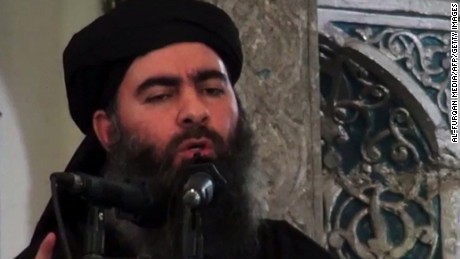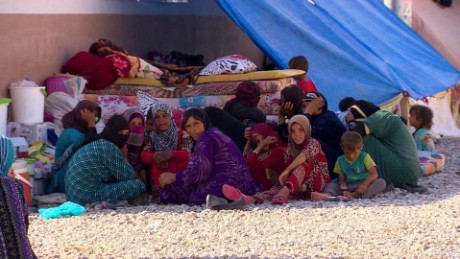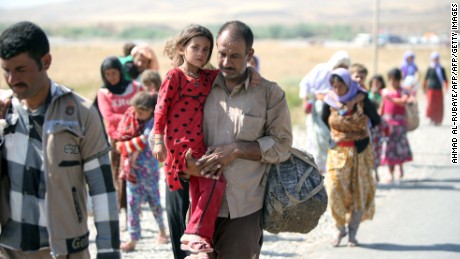Why the battle for Mosul matters in the fight against ISIS
Updated 1221 GMT (2021 HKT) March 9, 2021
(CNN)Of all the battles in the fight against ISIS, the operation to retake Mosul could prove the most significant.
Iraqi-led forces have started what will likely be a messy and prolonged offensive to seize Iraq's second-largest city.
Having already lost key cities -- such as Tikrit and Ramadi -- Mosul is the militant group's last bastion of power in the country. Simply put: Freeing Mosul would be the beginning of the end of ISIS in Iraq.
Here's what makes Mosul so important to ISIS and the region:
Mosul is massive
Mosul is Iraq's biggest metropolis outside of Baghdad, and gaining control of the city was one of ISIS' most significant strategic wins. When ISIS took Mosul in June 2014, it also took control of more than 2.5 million people, whom the group subjected to horrors -- public beheadings, throwing gay men to their deaths from the top of buildings and making prisoners out of men who did not grow beards and women who did not wear Islamic clothing, like burqas. There has been a mass exodus in the past two years, and today around 1 million people remain.
It's near critical oil fields
Mosul's location is incredibly important. It's a key trading city not far from the borders of Syria and Turkey. Wresting Mosul away from ISIS would significantly limit the movement of fighters, weapons and supplies.
The city is located near some of Iraq's most vital oil fields, as well an oil pipeline that services Turkey. Securing these fields could bolster Iraq's economy. It could also hit ISIS' finances hard as the militant group has been known to sell oil illegally to fund its operations.
The city is ISIS' 'cultural capital'
Mosul is the place where ISIS leader Abu Bakr al-Baghdadi declared the ISIS caliphate -- an area ruled by an Islamic government under a caliph, regarded as a successor to the Prophet Mohammed.
According to Fawaz Gerges, author of "ISIS: A History," Mosul is a crown jewel in the so-called caliphate and has been considered the "cultural capital" since Baghdadi's declaration there.
Mosul is home to an epic humanitarian crisis
ISIS' control of Mosul has added tremendously to the refugee crisis, as hundreds of thousands of people have already fled the city and are now either internally displaced or living in foreign lands.
By securing the city, the Iraqi government would be able to begin addressing the humanitarian crisis there and ease the flow of refugees into neighboring countries and beyond.
It's unclear what a free Mosul will look like
But defeating ISIS in Mosul is only half the battle. If the Iraqi-led forces succeed in their offensive, Baghdad will have to hold onto the city, rebuild its infrastructure and prove it can effectively govern it. Otherwise, it's back to the drawing board.
Going by efforts to rebuild Tikrit and Ramadi, there might be little cause for optimism, Gerges told CNN. But he pointed out that significant US investment into this particular operation boosted the chances that a reconstruction is Mosul will be successful.
What will happen to religious and ethnic minorities if the operation is successful is one of the biggest unknowns in this battle.
ISIS has targeted Assyrians, Armenians, Turkmen, Kurds, Yazidis, Shabaki and many others, and liberating Mosul would allow for these minority communities to return to the city. Many have existed there for centuries and are vital to the social fabric of the Iraqi state.
But doling out power and territory to different groups will no doubt be complicated.
Until 2014, when ISIS gained control of Mosul, the city was considered the center of the Assyrian Church of the East, as it houses the tombs of several old testament prophets, including Jonah. Many of these historic sites have since been destroyed and the Christians killed or chased out.








